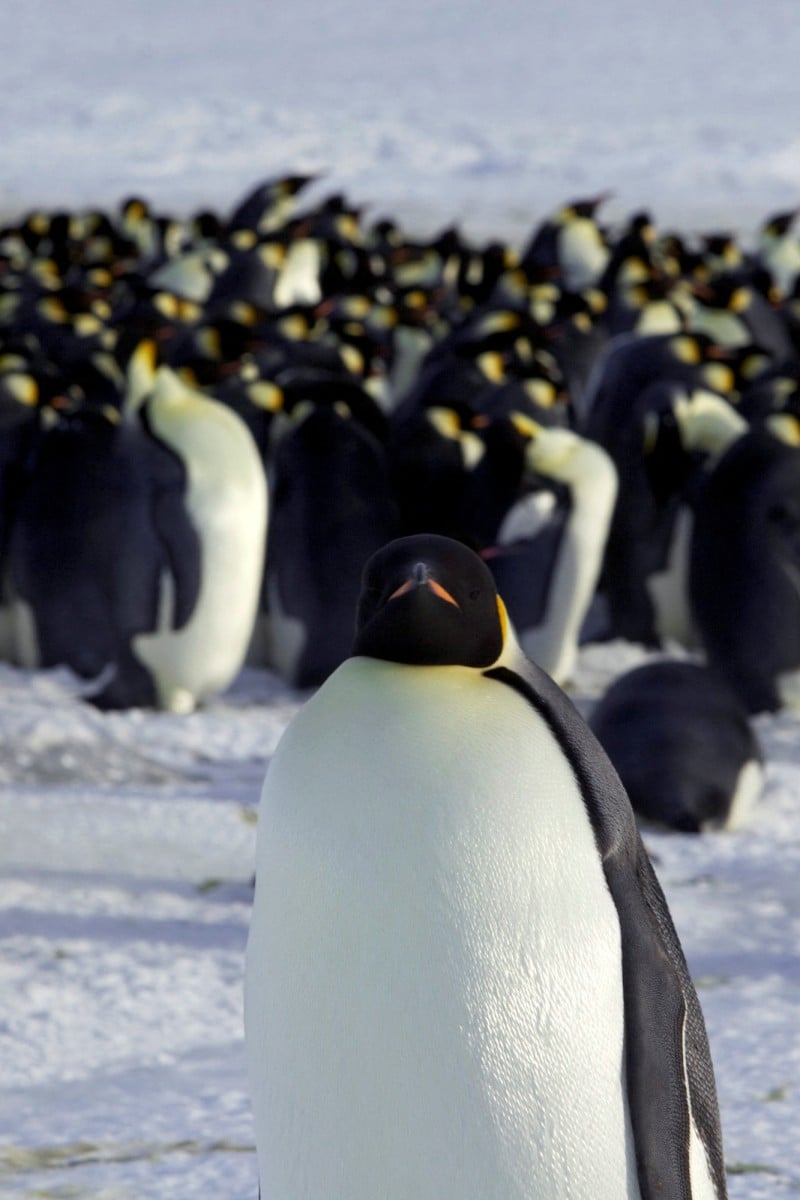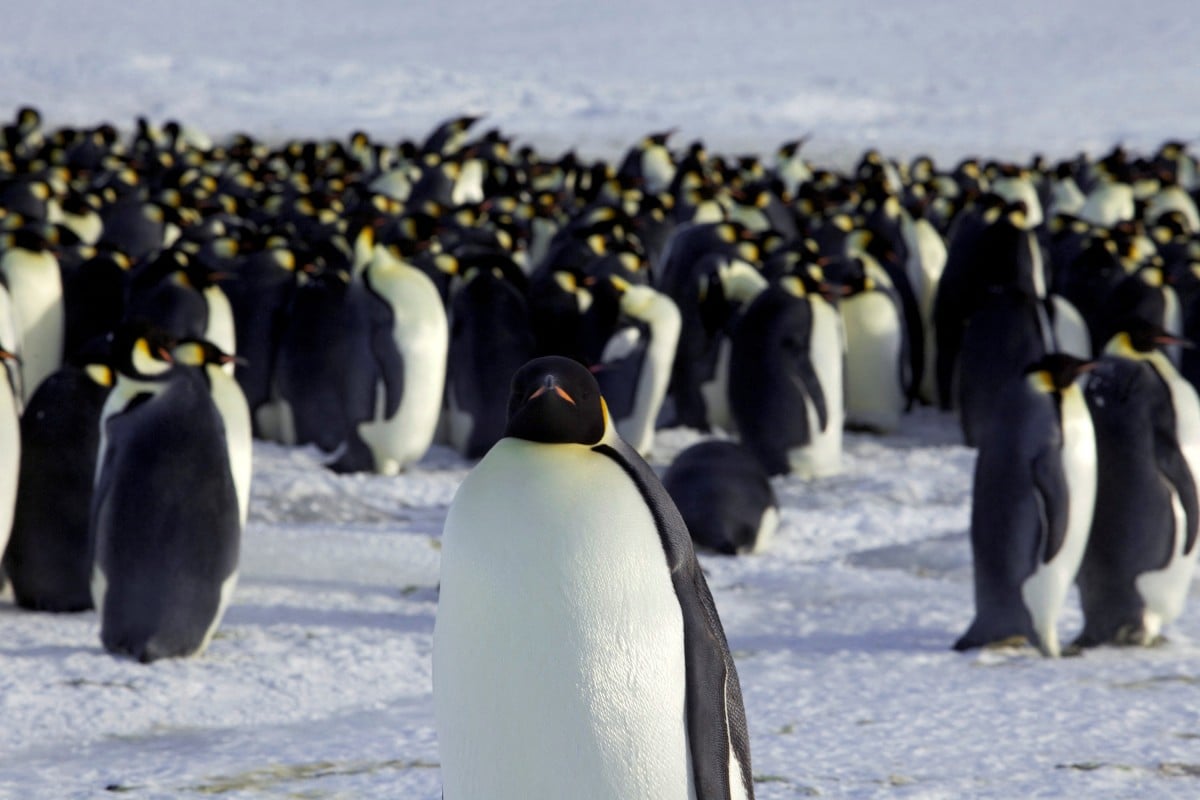
Global warming hits emperor penguins as their icy homes erode on the back of climate change, says study
- British Antarctic Survey says record-low sea ice levels in 2023 hit the mortality rate of the birds
- Fourteen of 66 penguin colonies, which can each produce several hundred to several thousand chicks in a year, were affected by early sea-ice loss
 A study has shown that emperor penguins are perishing as ice melts to new lows. Photo: Reuters
A study has shown that emperor penguins are perishing as ice melts to new lows. Photo: ReutersA large number of emperor penguin chicks were hit by the effects of climate change in 2023 as their icy homes were eroded despite the species’ endeavours to adjust to the shrinking landscape, as per a study.
The study by the British Antarctic Survey found that record-low sea ice levels in 2023 contributed to the second-worst year for emperor penguin chick mortality since observations began in 2018.
It follows a “catastrophic breeding failure” in 2022, signalling long-term implications for the population, the study’s author Peter Fretwell said.
Emperor penguins breed on sea-ice platforms, with chicks hatching in the winter between late July and mid-August.
The chicks are reared until they develop waterproof feathers, typically in December ahead of the summer melt.
But if the ice melts too early, the chicks risk drowning and freezing.
How animals choose to snooze: penguins take thousands of tiny naps a day
Fourteen of 66 penguin colonies, which can each produce several hundred to several thousand chicks in a year, were affected by early sea-ice loss in 2023, said the study published in the Journal of Antarctic Science.
The result is “high if not total levels of mortality”, Fretwell said.
Yet 2023 “wasn’t as bad as we feared”, he said.
A record 19 colonies were affected the year before.
The study also found that several colonies, particularly those ravaged the previous year, had moved in search of better conditions onto icebergs, ice shelves or more stable sea ice.
While such moves offer a hopeful sign that the birds can adapt to the changing environment, Fretwell warned it was a “temporary solution”.
“Penguins are limited in the amount of adaptation they can do. There are only so many places they can go,” he said.
San Francisco science museum has welcomed 10 African penguin chicks
Instead, Fretwell said humans needed to adapt by reduce planet-heating greenhouse gas emissions that are contributing to ice melt to mitigate the main threat facing the species.
Both 2022 and 2023 were the first years to see the area of sea-ice fall below two million square kilometres (770,000 square miles) since the beginning of satellite records.
That marks a decline of about 30 per cent from the 1981-2010 average.
There are about a quarter of a million breeding emperor penguin pairs, all in Antarctica, according to a 2020 study.
“If you get multiple bad years, it is going to start to drive the population down over time,” Fretwell said.
The study noted that if greenhouse gas emissions continue at current levels, the penguin population is expected to decline by 99 per cent by the end of the century.